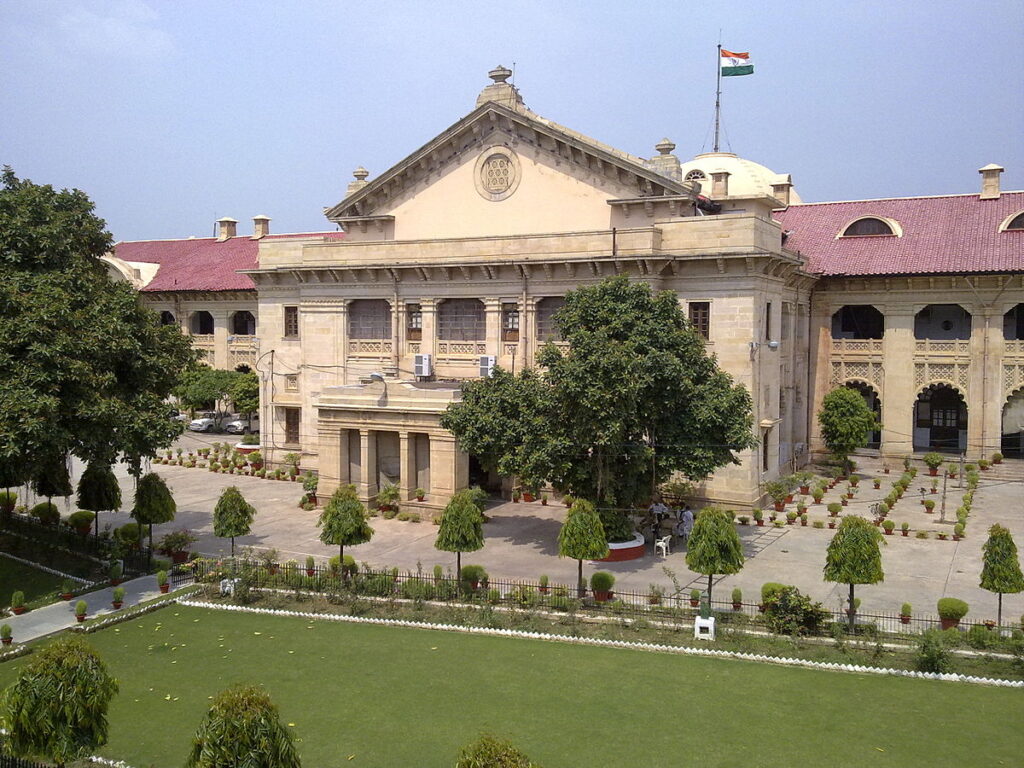“Child Marriage” Under PCMA: Allahabad High Court Rules 2004 Marriage of Minors as ‘Invalid’.

The Allahabad High Court has ruled that a marriage between minors, which took place in 2004, is invalid. This decision came after the husband appealed a Family Court ruling that had denied his request to declare the marriage void. Justices Saumitra Dayal Singh and Donadi Ramesh noted that it was clear both individuals were minors at the time of the marriage, as defined by the Prohibition of Child Marriage Act (PCMA). They stated that no further evidence was needed to declare the marriage a “child marriage.” The court also ordered the husband to pay his wife Rs. 25 lakhs within one month.
In this case, the husband was born in 1992 and the wife in 1995. When they married in 2004, the husband was around 12 years old and the wife was about 9. In 2013, the husband filed a lawsuit, citing the Prohibition of Child Marriage Act, claiming it was within the legal time limit. He also mentioned other reasons, including that the wife never lived with him.
In the objections submitted by the Respondent to the Suit, it was argued that the Appellant reached the age of majority, 18 years, in 2010. Thus, the Suit filed two years later was considered time-barred under the PCMA. The Family Court recognized the marriage as a ‘child marriage’ under PCMA but still upheld the objections and dismissed the Suit. The Appellant then appealed to the High Court. The High Court, considering the case’s details, stated that it could not support the lower court’s reasoning, particularly regarding the Appellant’s prior filing of a divorce suit under section 13 HMA before the PCMA suit. It noted that there was no clear action taken by the Appellant after reaching majority that would indicate he had confirmed or legalized the ‘child marriage.’ Since the later suit was filed within the allowed time, he had not given up his right to void the marriage.
The Court also mentioned that although the Suit was filed without directly referencing Section 3(3) of PCMA, the allowed amendment should be considered as relating back to the original filing date. Therefore, the incorrect section reference should not affect the legal proceedings. The Appellant’s substantive rights should be evaluated based on existing statutory law in light of the amended documents. The Suit was filed in a competent court, and thus, the lower court made an error in dismissing it.
The Court noted that the Appellant had until the age of 23 to file the Suit. Since the Appellant was under 23 when he filed, the Suit was within the time limit, as it was submitted before two years after he turned 21 and stopped being considered a “child.”
It was acknowledged that the suit was filed by someone involved in a “child marriage,” making it valid. The Court confirmed that the Appellant had the ability to file the suit since he was over 18 years old. The Appellant was the only one who could initiate this action. The Court also mentioned that the Respondent did not prove that the Appellant had chosen to confirm the “child marriage” after reaching adulthood or that he had given up his right to annul it. Therefore, the Family Court should have granted the requested relief.
The Court then considered the issue of maintenance and housing for the Respondent. The Respondent’s lawyer requested INR 50,00,000 for permanent alimony and a house for the Respondent. The Appellant offered a maximum of INR 15,00,000 for alimony. Since the Respondent was living with her parents, her request for housing was denied. The Court decided on a permanent alimony amount of INR 25,00,000. Consequently, the High Court approved the Appeal, overturned the previous Order, declared the marriage void, and instructed the Appellant to pay Rs. 25 lakhs within one month.
Cause Title: Sanjay Chudhary v. Guddan @ Usha (Neutral Citation: 2024:AHC:173333-DB)
Appearance:
Appellant: Advocates Anil Kumar Mehrotra, Srijan Mehrotra, and Ashwani Kumar Patel.
Respondent: Advocates Gaurav Tripathi, Anurag Vajpeyi, and Bindu Kumari.








